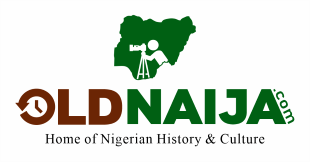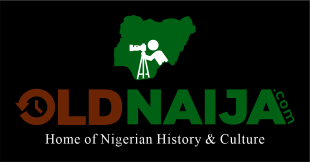The Origin and Meaning of Kanuri

Kanuri is a dialect continuum spoken by some four million people, as of 1987, mainly in North-Eastern Nigeria, Western Niger, South-Eastern Chad and Northern Cameroon, as well as small minorities in southern Libya and by a diaspora in Sudan.
The Kanuri Kingdom with its remnant cities, provinces and states like Borno in Nigeria, Damagaram (Zinder) in Niger, Mao Chad and Kusri as well as Kanem in Cameroon among others were said to have originated from the East; some experts interpreted this East as the Southern Arabian Peninsula which equals to the modern geographical description of the territories of Al Hudaydah (Arabic: ﺍﻟﺤﺪﻳﺪﺓ ), also known in English as Hodeida or Hudaiyya in Kanuri in Yemen geographically located at 14°48′08″N 42°57′04″E.
These Kanuri people were said to have come all the way from the Arabian Peninsula and get settled at about 640 kilometres north of the present-day Lake Chad which was latter emerged as Kanem Empire (One of the two great Empires in the history of Africa).
Although these historical findings were based on extractions from available existing historical sources both and abroad including the British Library London, the American Museum of Natural History New York ,as well as in the Suleymaniye Library in Istanbul ( Turkey), but yet with the advent of modern technological advancements in the field of DNA testing and identifications, we believe that further research needed to be done with time in the field of geo-archaeological t and geo-biological investigations to further prove these findings beyond reasonable doubts.
However considering the similarities between Kanuri and Arabic languages as in counting days, numbers and some of the existing nouns in the language one can easily conclude that the Kanuri language is a product of decayed or decaying local Arabic mixed with some indigenous African languages. This is one of the main reasons that Anthropologists classified the Knauri language under the Nilo-Saharan language family.
Despite the fact that the Lake Chad environment which is the heart of the Kanuri settlement and the Kanem-Bornu Empire as a whole is a very dusty environment as such that if a person doesn’t wash his body more often or regularly the dust gets to settle on the skin and makes the skin look very dusty, but because the Kanuris are practising Muslims they regularly wash their faces, feet and hands five times a day hence making them have fresher looking skin at all times. It was in view of this fresher looking skin of theirs in the middle of this dusty Lake Chad environment that makes some of the neighbouring ethnic groups such as “Sau” (reputedly a race of giants) that lived around the present-day Ngala area referred to them as the Kanuris or Kanuri.
The name Kanuri is from the combination of two Kanuri words; “Ka” meaning Skin and a word derived from the Arabic word NUR or “Nuri” meaning Light (Though in Kanuri itself, Nur means light). Reason for calling the Kanuri as KA + NURI (KANURI) was that the Kanuri on arrival they were mainly Pastoralists engaged in rearing of cattle and sheep, so as a normal tradition almost every pastoralist carry stick with him that help him guide his animals while grazing and chasing them back home so same it was with the Kanuris.

For the Sau people they know that there were a lot of pastoralists living within their environment but this Kanuri people have fresher skin complexion and they always hold sticks with them so in other to differentiate them with the other Pastoralists holding same Skins makes them refer to them as the “Fresher (Nur) looking people with Stick (Ka) hence this resulted in calling them KaNuri literally translated as the Fresher skin people with sticks.
The Kanuri were also called with different names by different ethnic groups, for example, Beri Beri by the present-day Hausas and Barnowaji by the Najdi, Baggara and Hejazi tribes living in Chad and Sudan republics.
The Kanuri language was the major language of the pre-colonial Kanem-Bornu Empire and remains a major language in southeastern Borno and Yobe states in modern Nigeria, Diffa and Damagaram in Niger republic as well as Mao, Kusri and Kanem in the Chad and Cameroon republics as well, yet having some few presents in Western Sudan and Southern Libya as well.
The Kanuri kingdom started with the Dynasty of Sayfawa which was founded by Sayf ibn Dhi Yazan who many historians considered him to be an Arab from the Arabian Peninsula as indicated earlier. Yazan ruled and controlled the Kanem Empire for about 800 years. So with these historical facts, it said that the ancient Kanem Empire was founded in the 9th Century and its first capital was a town in the north-eastern part of Lake Chad known as Njimi.
The Sayfawa Dynasty and their subjects fled to Birnin Gazargamu when the Bulala people attacked them. Birnin Gazargamu remained as capital even after the reclaiming of Njimi in the 16th Century. However, over the years towns/cities like Monguno, Kukawa, Dikwa , Old Maiduguri and now Maidugrui/Yerwa were all capitals at different times since the last 1000 years ago.
The rulers of the El-Kanemi family were brought in to rule the kingdom after some lapses that occurred and that even cost the office of the ruling Mai as at that time. So a prominent Islamic scholar and a warrior in Ngala known as Sheikh all Hajj Muhammad al Amin ibn Muhammad al Kanemi was brought in as a ruler to checkmate attacks and return the kingdom to a required status. So with this, we can say that the Sayfawa Dynasty came to an end in the year 1846. Many of the descendants of the Mais of the Saifawa dynasty are still living in Maiduguri with many of them living in the Lawan Bukar Kaacha, Shehuri North and the Fezzan ward areas of Maiduguri.

For a period of several centuries, the efforts of the Saifawa to consolidate their power and expand their kingdom’s boundaries led to the incorporation of many distinctive groups within Kanuri society. This process has not ended. Intermarriage, commerce, politics, and other factors have combined to produce people who are culturally heterogeneous.
The Kanuri have had a strong influence on surrounding peoples, which include the Budum of Lake Chad, the Mandara and Kotoko (or Mogori) who live southeast of the Kanuri, the Marghi of the Damboa district, the Babur in the hills south of the Kanuri, the Bolewa located southwest of the Kanuri, and the Bede of Gashua, within the Kanuri territory. All of these groups have acquired various aspects of Kanuri culture, mainly the Kanuri language and Islam. Many, including the Hausa, were at one time subjects of the Kanuri Empire.
Thanks for reading, OldNaija.com
By Idris Alooma Zanna
Questions? Advert? Click here to mail us or click here to call us.












Nice read